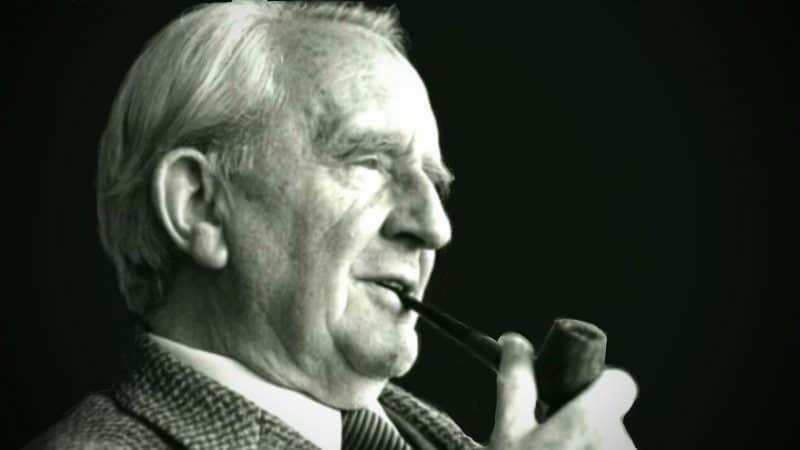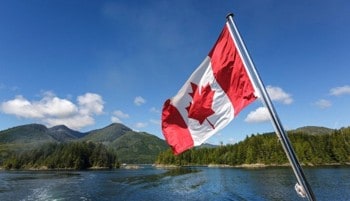Mark Wegierski looks at possible definitions of a distinctly Canadian “speculative fiction”. The term “speculative fiction” is said to be a Canadian invention. “Speculative fiction” is a term that is said to cover science fiction, fantasy, and horror. Science fiction is said to be a genre of the mind; fantasy, of the heart; and horror, of the body. Apart from Margaret Atwood, who tends to eschew the term science fiction in regard to her works such as The Handmaid’s Tale, Oryx and Crake, and (most […]
Autor: Mike Krupa
Wegierski: In Search of Canadian Identity
Mark Wegierski notes the problematic nature of current-day Canadian identity. Canada, which Pat Buchanan once called a “Soviet Canuckistan”, certainly has some serious problems combating the ceaseless self-undermining of its military forces and traditions, but it is also having at least as difficult a time defining a coherent identity for itself. For example, there have been frequent calls to eliminate the traditional oath to Queen Elizabeth and her heirs and successors, as a condition for receiving Canadian citizenship. Since the 1960s, Canada, which was once […]
Wegierski: Fukuyama, thirty years after – some still unanswered philosophical questions
Initial drafts of this response to Fukuyama’s article go back to November 1989. Francis Fukuyama, „The End of History?” The National Interest no 16 (Summer 1989), pp. 3-18 and Alan Bloom, et al. „Responses to Fukuyama.” The National Interest no 16 (Summer 1989), pp. 19-35. Fukuyama’s article has caught the attention of many persons who study political philosophy, and who are deeply interested in questions of what might somewhat over‑optimistically be called „the future of the West”. Fukuyama’s article has been perceived as a daring […]
Wegierski: Space exploration, technology, and the possible futures of humanity
In honor of the Moon landing 50th anniversary, Mark Wegierski tries to predict the future of humanity in space. Despite the various vicissitudes of the economic development of the planet, it may be that this is only a small detour on an ongoing path of humanity’s technological development. Space exploration is often criticized as a waste of money that could better be spent on Earth-bound concerns. However, space exploration may be seen as a very long-term strategy for human survival. In the more immediate present, […]
Wegierski: Exploring social alternatives through eclectic media — looking back at a 1977 game about Canadian civil conflict
Canadian ‘Civil War’: Separatism vs. Federalism in Modern Canada was a board wargame published by Simulations Publications, Inc. (SPI), then the premiere gaming company, in 1977. On the game’s cover-sheet, it is called “A Political Simulation Game”, and it is said that “the time is: 15 November 1976.” This is a game with mostly political, rather than military conflict, played on an abstract map, where the four different factions struggle with each other. These are the Federalists (Red counters); the Provincial Moderates (Orange counters); the […]
Wegierski: Earth Day 2019 – tradition and ecology
The happenstance that Easter Sunday and Earth Day fall within a day of each other in 2019, leads the author to attempt a sketch towards the synthetic nesting of ecological issues within notions of culture and tradition. What are some of the affinities between traditionalist and ecological thinking? The United States and Canada certainly participate today in the worldwide trends to technology (sci-tech); urbanization and migration; media; tribalism; and violence. Together, these might generally be seen as constituting the ongoing crisis of national sovereignty and […]
Wegierski: The Polish-Canadian community: Apolonja (Pola) Maria Kojder — representative of a fragmentary tradition
Canada today is officially and juridically a multicultural society. This means, among other things, that the distinctive cultures of various diasporas are – at least in theory — encouraged, and, to a greater or lesser extent, supported by Canadian federal, provincial, and major-municipal governments. In practice, most funds are given to so-called “visible minorities” – as opposed to most of the “white ethnic” groups. At the same time, the so-called main Canadian culture also receives extensive support from all levels of Canadian government. The Canadian […]
Wegierski: Questions of Ethnic Identity Persistence in Mass-Media Dominated North America
The persistence of the cultural identity of some so-called “white ethnic” groups such as Polish-Canadians has become increasingly problematic in the North American (U.S. and Canada) cultural space, dominated by mass media. The official declaration of Canada as a multicultural society has not led to an increased profile for some of these “white ethnic” groups such as Polish-Canadians. Indeed, there is a marked contrast between the major emphasis placed today in Canada on so-called visible minorities – as opposed to the so-called “white ethnics”. Canada […]
Wegierski: Examining the historical defence of Christendom as the conceptual template for the defence of “Westernesse” in J.R.R. Tolkien’s The Hobbit/The Lord of the Rings
J.R.R. Tolkien (1892-1973) is widely reputed to be the archetypal author of fantasy in the modern period, or what has come to be termed “high fantasy”. Some have said that Tolkien both inaugurated and closed out the high fantasy subgenre, since anything that follows him is bound inevitably to appear derivative. Over the years, there has been a wide-ranging debate on whether Tolkien’s The Hobbit and The Lord of the Rings, are more “pagan” or “Christian” in spirit. In this presentation, we will be looking […]
Wegierski: Third parties in Canada
“Third parties” are an endlessly fascinating topic of study for political theorists. The notion of “third party” arises in polities characterized by “first-past-the-post” voting systems, where there are usually only two major parties. Polities characterized by proportional representation (PR) voting systems, tend to have a multiplicity of parties. Particular popular attention – although scant electoral support — is given to “third parties” in the U.S. – where the “two-party” system is so strongly entrenched. Since the 1850s, with the rise of the Republican Party, there […]







